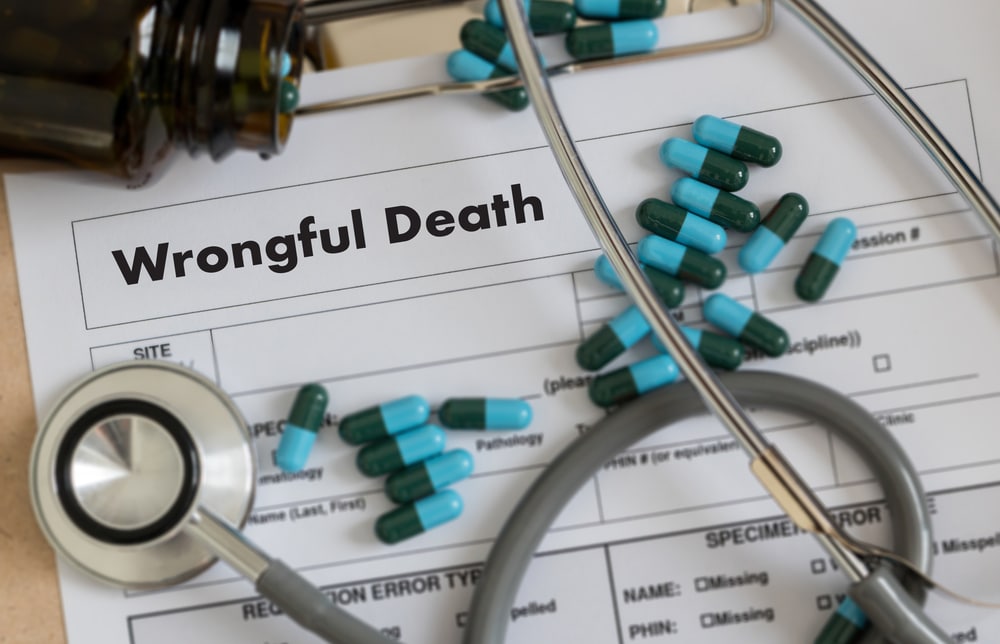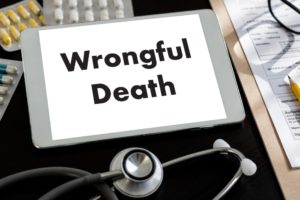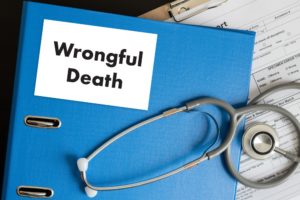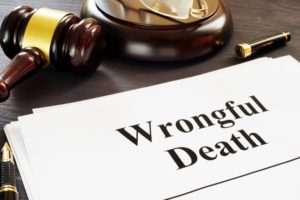
To prove wrongful death, you have to show through credible evidence that the defendant committed a wrongful act, whether negligently or intentionally, that caused the death of your close relative.
Elements of Wrongful Death
At Farmer & Morris Law, PLLC, we handle wrongful death claims in North Carolina and South Carolina. If your loved one died at the hands of another person, you might be eligible for money damages for your losses. Here are the elements that we will have to prove to win a claim of wrongful death:
North Carolina Law
The North Carolina statute Section 28A-18-2 sets the guidelines for wrongful death cases. We will have to provide evidence that shows:
- The deceased person would have had a right to file an action for compensation if they had survived their injuries, and
- The defendant caused the fatal harm by neglect, a failure to act, or a wrongful act, even if such conduct was a felony
We have to prove all of those factors for a successful wrongful death claim. Once we satisfy those elements, we can seek compensation from the defendant.
Perhaps your loved one got injured in a crash with a drunk driver. Your loved one was unconscious from the injuries he suffered. The drunk driver fled the scene and did not call for emergency assistance to help your loved one. The injured party died at the scene of the accident. The police caught the drunk driver soon after the collision.
But for the defendant’s driving while impaired by alcohol and illegally leaving the scene of an accident with injuries, your loved one would be alive today. The wrongful acts of the defendant caused the death of the deceased person. If the victim of the crash had survived his injuries, he would have been eligible to file a personal injury claim against the defendant, seeking money damages for his losses.
You would prove the wrongful death by using the law enforcement and criminal records that established the defendant’s wrongful conduct that caused the untimely death. Also, you would use the emergency room medical records or the medical examiner’s report (if the victim did not go to the emergency room) to show that the deceased person died from wounds suffered in the collision.
South Carolina Law
The South Carolina Code of Laws Section 15-51-10 contains the same elements as the North Carolina regulations for both the negligent and intentional taking of a life. You would prove these situations the same way in both states.
To understand how you would prove wrongful death in an intentional killing situation, in either state, we will walk through a scenario. Imagine that a disgruntled, recently fired worker planted a bomb under his former supervisor’s car. Starting the car would trigger the explosion.
The bomb worked, killing the supervisor and two bystanders and causing severe burns to another person. The bomber experienced remorse and confessed to assembling and planting the bomb.
The close relatives of the three deceased people could file wrongful death lawsuits against the defendant (the fired worker). The person with burn injuries could file a personal injury case against the defendant.
- To prove the wrongful death claims, the plaintiffs (people who file the lawsuits) would use the defendant’s confession, the law enforcement reports, the medical examiner records, and the testimony of explosives experts, if necessary, to show that the wrongful act of planting the bomb caused the deaths.
- The surviving victim could use the same types of evidence, plus the medical records from his injury treatments, to prove the allegations in his personal injury case.
The evidence needed to prove a wrongful death case will depend on the facts of the situation. Every case is different. These two examples are suggestions of how one might prove a wrongful death case. Other types of evidence might be necessary in your claim.
Punitive or Exemplary Damages in Wrongful Death Cases
In addition to the standard money damages the legal beneficiaries and the estate of the deceased person can pursue against the defendant, the plaintiffs in a wrongful death case can request punitive or exemplary damages when the victim died from an intentional, malicious, or reckless act by the defendant. Some examples of standard damages in these cases include:
- The medical expenses for the fatal injury of the person who died, such as the ambulance, emergency room, hospital, doctors, and surgery
- Pain and suffering of the deceased person from the moment of injury to the time of death
- Reasonable funeral and burial costs
- Monetary and non-economic losses of the surviving legal beneficiaries, such as the loss of financial support, services, companionship, guidance, protection, comfort, and assistance the decedent could have provided if they had not died
Every wrongful death claim is different, so you might have additional losses.
Personal Injury Lawyer Near Me (828) 286-3866
Getting Help With Your Wrongful Death Claim
Farmer & Morris Law, PLLC, wants to help people whose lives get turned upside-down by the negligent or willful wrongful acts of others. We treat our clients with compassion and respect. You can call us today at (828) 286-3866 for a free consultation.








